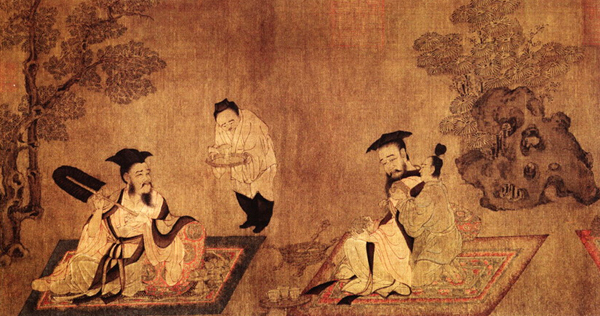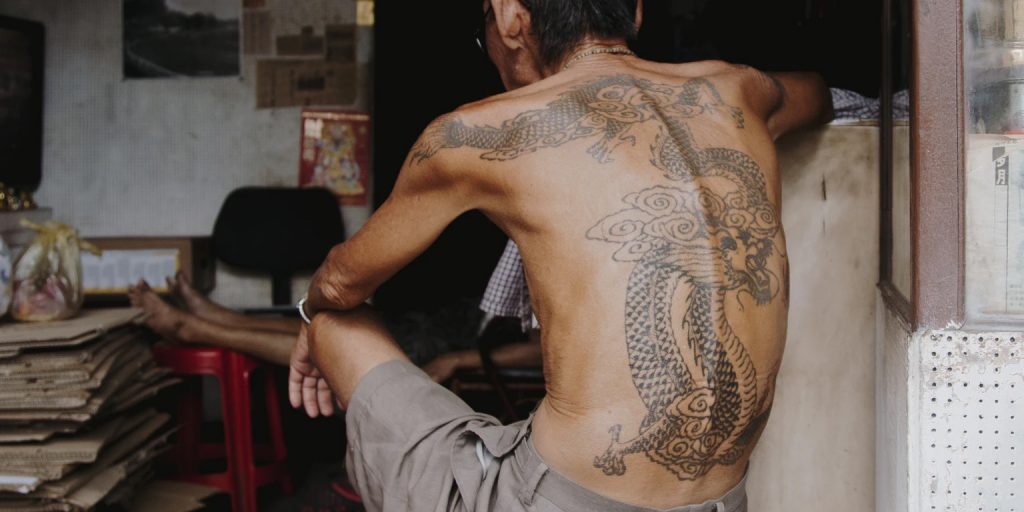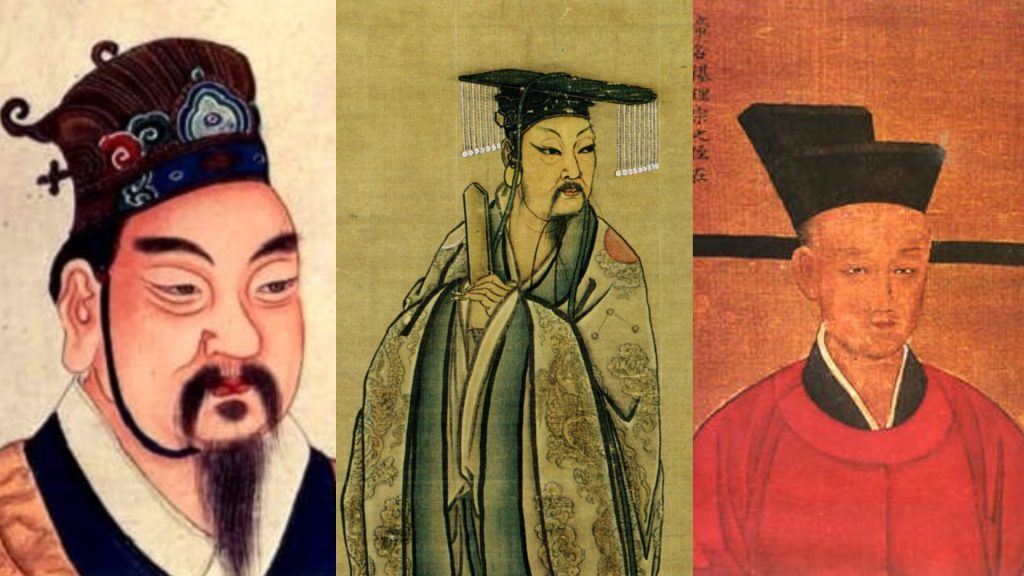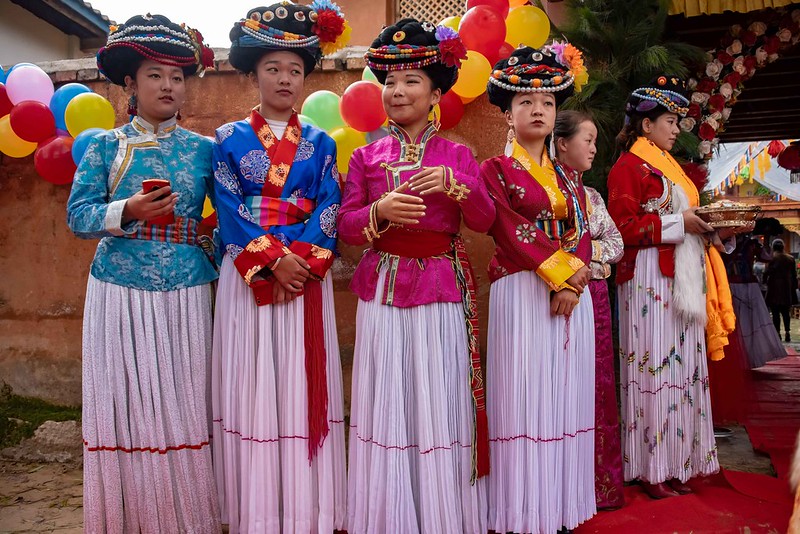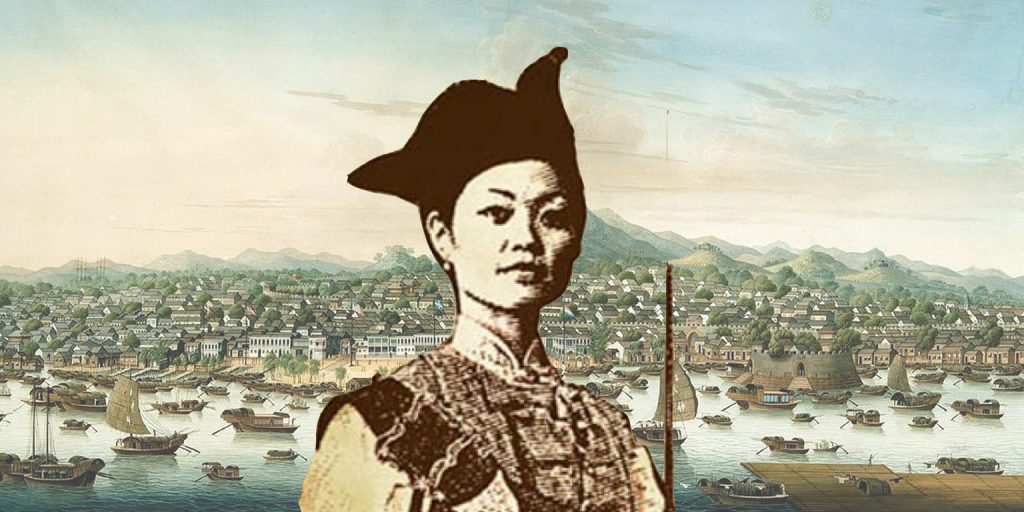5 Prominent Women in Chinese History
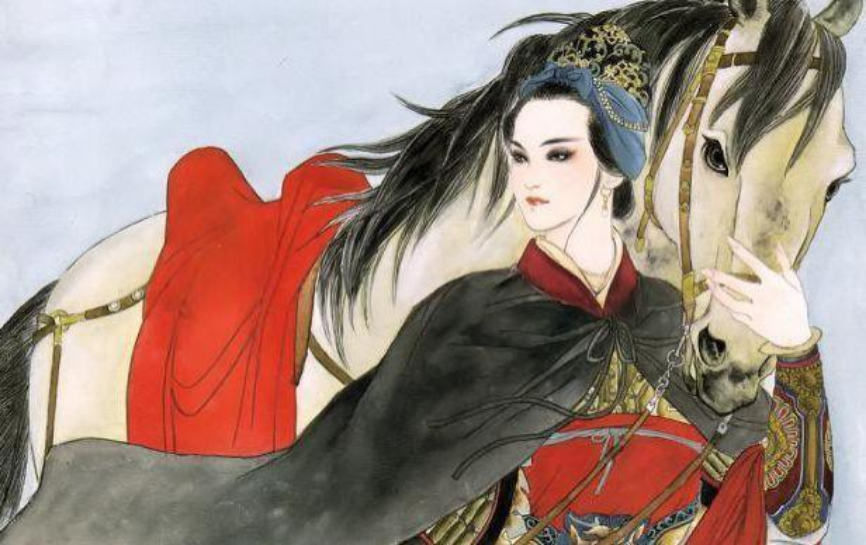
No matter the time or place, there is no doubt that women have always played key important roles in society.
In celebration of Women’s History Month, we have put together a list that showcases the achievements, talents, and stories of female individuals who have, in their own special way, left their mark throughout China’s millennia-long history.
Here are five Chinese women who have graced the world with legacies to be proud of:
1. Hua Mulan (花木兰)
Everyone knows Hua Mulan now as the honorary Disney princess who disguised herself as a man to take her father’s place in the army. Beyond that, however, she is considered to be one of China’s most legendary heroines.
Hua Mulan is said to have lived during the Northern Wei dynasty, recognized as an intelligent warrior trained both in the martial and literary arts. According to the Ballad of Mulan, where her story was first recorded, Mulan had actually spent twelve grueling years in the military — a service which the emperor acknowledged with an offered high-ranking position in the central government. Although honored by the gesture, Mulan declined and asked only for a horse with which she returned home. Unlike her portrayal in the animated film, it was only then when her comrades discovered her true gender.

Mulan, as portrayed by Disney’s 2020 film of the same name.
2. Xun Guan ( 荀灌)
According to history, Xun Guan was an ancient female warrior who led soldiers into the battle as a young child. She lived in the Western Jin dynasty as the daughter of Xun Song, the then-governor of Xiangyang.
When Xun Guan was thirteen, one of Xun Song’s officials decided to start a coup and surrounded Xiangyang with his troops, blockading the governor and his people inside with limited provisions. The only way to seek help was to break through enemy lines. Unfortunately, no one was willing to take on the task. Recognizing the urgency for the mission, Xun Guan, who was trained in the martial arts, volunteered for the role. She then led a small group of soldiers to the neighboring city of Pingnan and assembled reinforcements, which promptly ended the invasion of Xiangyang.
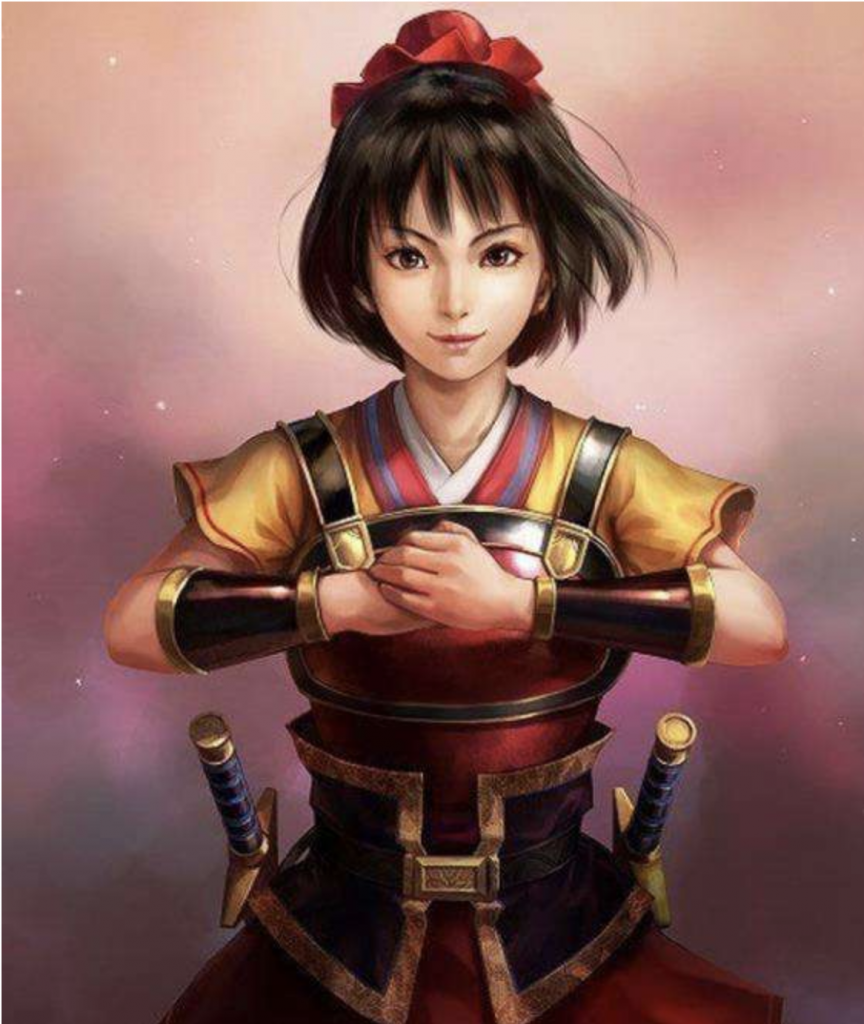
Xun Guan, as depicted by Chinese video game Romance of the Three Kingdoms XIII.
3. Ng Mui (伍枚)
Pinyin: Wu Mei
Ng Mui is reputed to be one of the five Legendary Elders — those who survived the destruction of the Shaolin Temple during the Qing dynasty. As a woman of legend, Ng Mui is credited to be the founder of various martial arts styles, including Wing Chun, Wu Mei Pai, Dragon Style, White Crane, and Five-Pattern Hung Kuen. In addition to this, she is also considered to be a master of Shaolin Kung Fu, Wudang Quan, Ng Ying Kung Fu, and Yuejiajuan.
As a popular figure, Ng Mui has been the subject of several local stories. One detailed account of her life depicts her studying at the Henan Shaolin Monastery prior to its destruction. She survived this tragedy only because her master had previously become a traitor when she defeated him during the reign of the Kangxi Emperor.
After the event, Ng Mui then fled to the White Crane Temple, where she met Yim Wing-Chun, a fifteen-year-old girl who was being forced into marriage by a bandit. To help Wing-Chun, Ng Mui developed a new martial art style that could be learned quickly without the need for great strength. This martial art style is now, of course, named Wing Chun.
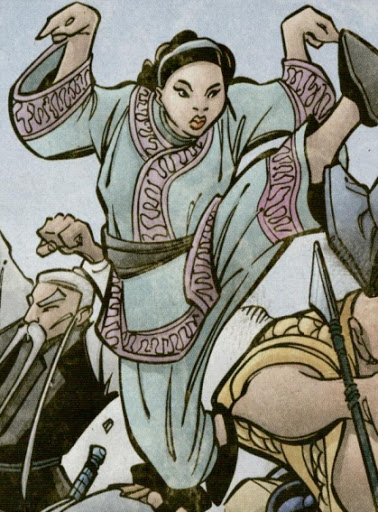
An illustration of Ng Mui.
4. Jin Yunmei (金韵梅)
Born in 1864, Jin Yunmei was an accomplished woman who was known for being not only the first Chinese student to graduate from Yale University but also the first female Chinese student to study overseas. Displaying an exceptional intelligence and character, she was regarded as a respected doctor, educator, and philanthropist.
Jin Yunmei lived a very eventful life. Orphaned at the tender age of three, she was adopted by American missionaries who then raised her in Japan. Afterward, she pursued studies at the Women’s Medical College of New York, where she graduated at the top of her class.
After having built a great medical career following her work in the United States, Jin Yunmei decided to return to China, recognizing that her birth parents died partly due to the country’s poor medical technology. Dedicating her life to its medical development, Jin Yunmei established several private practices in Xiamen before becoming the superintendent of Tianjin Beiyang Women’s Hospital in 1907. A year later, she founded the first Chinese public nursing school, which was open to students coming from impoverished families.
In her leisure time, Jin Yunmei also participated in voluntary work at the local orphanage and actively took part in charities aimed at the development of education and rural health until her death in 1934.
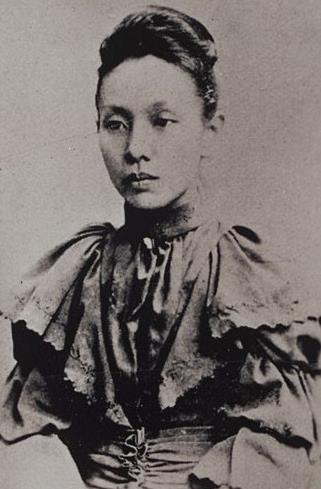
A portrait of Jin Yunmei.
5. Soong Ching-Ling (宋庆龄)
Pinyin: Song Qingling
Rosamund Soong Ching-Ling was the third wife of Sun Yatsen, the first provisional president of China. Honored as the Mother of Modern China, this ambitious woman served as one of the leaders of the 1911 revolution that led to the establishment of the Republic of China.
Together with her siblings, Soong Ching-Ling was an active player in local and international politics. Not only did she act as the Vice President of the People’s Republic of China for more than 25 years but she also established the China Defense League, which was later renamed the Chinese Welfare Institute. The organization was directed toward the purpose of improving children’s health and welfare, particularly in areas under strong Communist influences.
Additionally, Soong Ching-Ling strongly advocated for women’s rights. She was also awarded the Stalin Peace Prize for her work on peace and welfare committees. In recognition of all her efforts towards the development of her country, she was named the honorary Chairman of the People’s Republic shortly before her death in 1981.
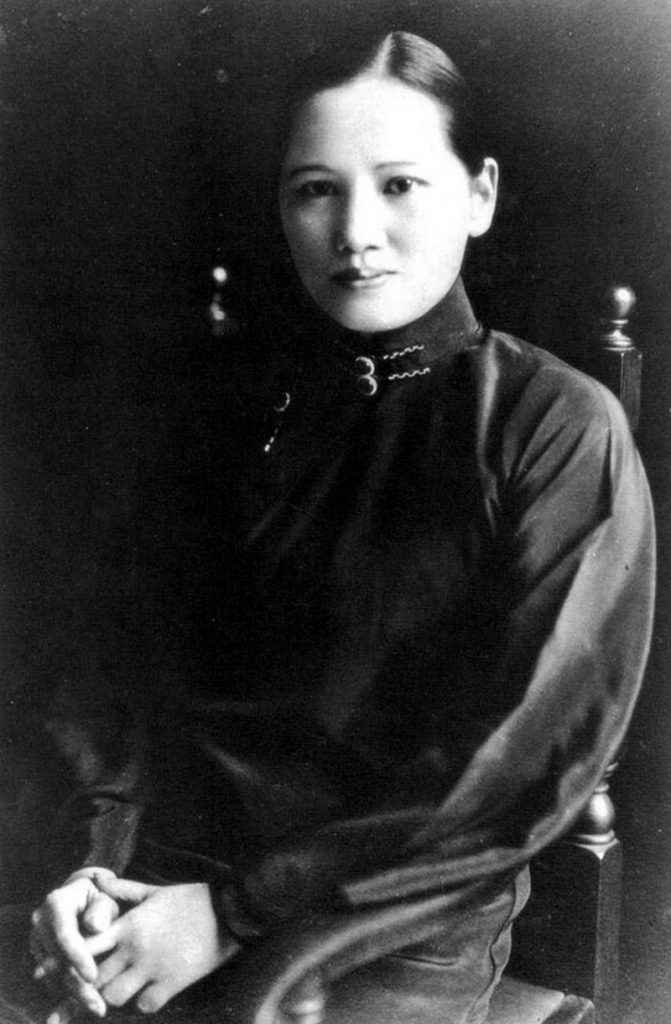
A picture of Soong Ching-Ling.
Interested in reading more about great Chinese women? Check out this article here!





